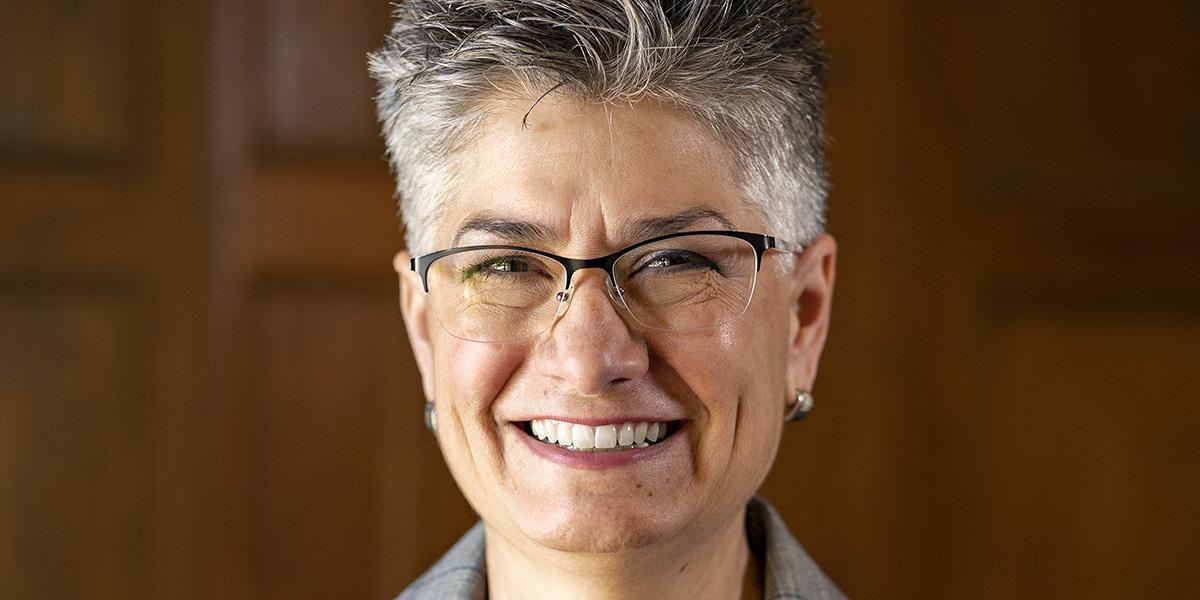As the Victoria High School counselor left his office, he shut the door behind him. Left alone inside was Yolanda Zepeda, an academically promising Victoria High senior, and a tall stack of applications to Texas colleges.
"He said, 'You can leave when you have those filled out. Knock on the window and the secretaries will let you out when you have those applications complete,'" Zepeda recalled during a recent interview. "We had never talked about it, but he knew my parents didn't support my college aspirations. Later, I had full scholarship offers with room and board and more money than I had ever seen in my life because of his actions."
The counselor's instructions for Zepeda during that day in Texas symbolize a handful of key moments in her life when leaders, mentors, and colleagues have taken a chance on Zepeda and in doing so opened up new worlds.
"There were always individuals who have seen something in me and energized me to walk through the door," Zepeda said. Now, as the interim head of the Office of Diversity and Inclusion (ODI) for the past two years, Zepeda pays forward by piloting an organization aimed at offering access and equal opportunity for students from every zip code.
Her work leading ODI was recently acclaimed when she was given the 2024 Central Ohio Social Justice Award for Education Advocacy from the Think Make Live organization at a recent awards banquet in Columbus. "The founder of that organization has dedicated himself to creating opportunities for those who face the challenges he had," she said of Think Make Live. "My hat is off to all who do this work."
As Zepeda reflects on a career spent trying to increase educational equity and equal opportunity, an early influence was growing up as part of the lone Mexican-American family in an all-white neighborhood alongside Victoria's richest families. "My father had to physically threaten the realtor to actually sell us the house," she said. "A lot of those contradictions and that extreme inequality that I saw at a young age was what made me very determined to pursue my own education and has really shaped my career over the years."
After graduating from Texas A&M with a bachelor's and master's degree in educational psychology, Zepeda spent time in Germany before finding a fellowship that allowed her to study sociology in a doctoral program at Indiana University. While she never finished her dissertation, another door opened when she was made assistant dean at Indiana after proving her organizational capabilities. "I always saw myself as someone who would work at a think tank and do research, but once I stepped into an administrative role I never left," she said.
Zepeda came to The Ohio State University in 2002 for a job as director of enrichment at the Graduate School and also worked for six years as associate director of the Committee on Institutional Cooperation before landing at ODI in 2010 as assistant vice provost. "Over time, I saw the space where I could do the inclusion work was shrinking and the other expectations and demands were increasing," she said. "I felt like I had grown all I could in those spaces, and it was a good opportunity to come here and put diversity and inclusion first."
In her interim role since 2022, Zepeda said she delights in giving latitude to younger staff members to pursue fresh ideas. "Because I see my role as preparing ODI for the next leader, my focus is really on empowering everyone to be engaged in their space and to learn from one another as we strengthen our student success practices and outcomes," she said.
Away from work, Zepeda enjoys the simple pleasures of working in the garden and doting on her three grandchildren along with her husband of 22 years, James Palavin. "A ten-hour garden day is a great day," she said. "I don't have to think about anybody. I can just dig in the garden and have a spritzer in the afternoon, and then go for another shift of getting my hands dirty."
